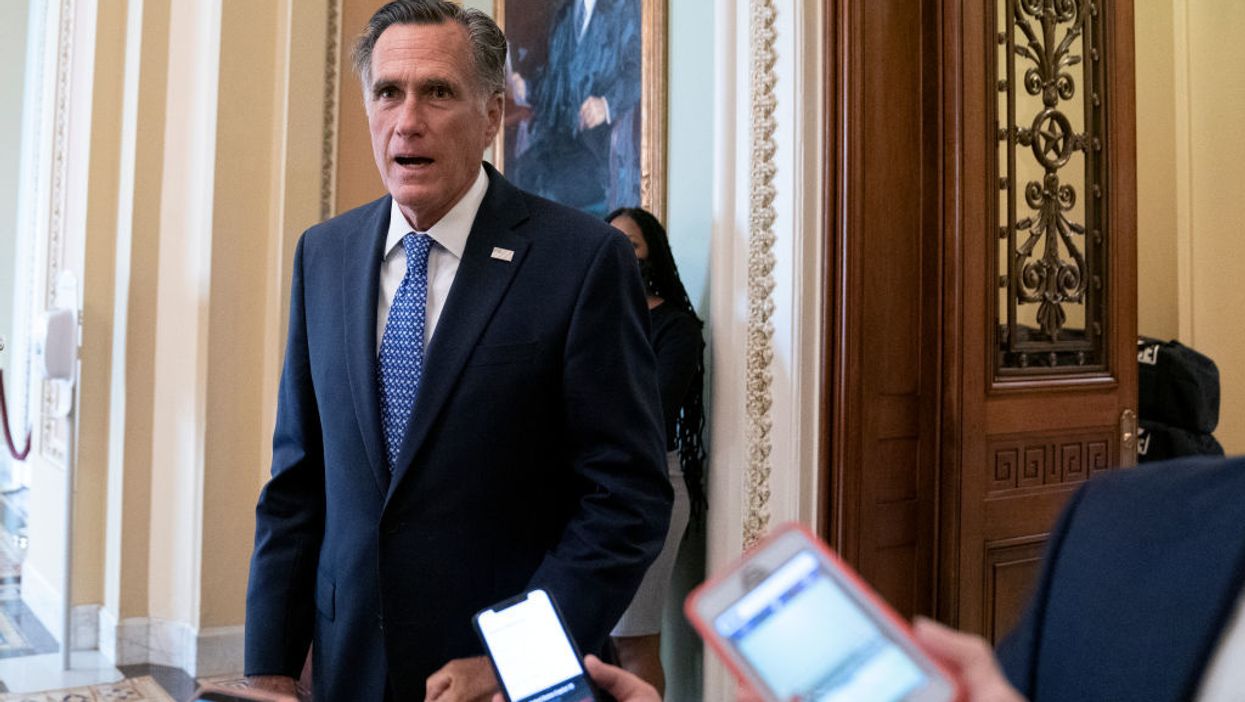
Stefani Reynolds/Getty Images

This almost certainly gets McConnell to 50 votes
As President Donald Trump quickly moves ahead to nominate a replacement for the late Ruth Bader Ginsburg, Democrats had hoped to halt that process in its tracks by convincing at least four Republicans that Trump's nominee should not even receive a vote before the election. Those hopes likely took a mortal blow on Tuesday when Utah Sen. Mitt Romney (R) announced that he is not opposed to confirming a nominee in an election year and that he would vote on Trump's replacement "based upon their qualifications."
Thus far, Democrats have only been able to secure "no vote" commitments from Alaska Senator Lisa Murkowski and Maine Senator Susan Collins among all the Republicans in the Senate. Democrats had hoped to secure similar commitments from Senators Lindsey Graham (S.C.), Cory Gardner (Colo.), or Chuck Grassley (Iowa), but one by one those hopes have been dashed. Democrats had remained hopeful that Romney might defect, given his contentious relationship with Trump (and his willingness to cast a "yes" vote on Trump's removal from office after the post-impeachment trial in the Senate earlier this year), but Romney issued a statement on Tuesday indicating that he intends to give the nominee a fair hearing and that he will not object to confirming a qualified nominee.
My statement regarding the current Supreme Court vacancy: https://t.co/6YO0dPWWXc— Senator Mitt Romney (@Senator Mitt Romney) 1600782711.0
In his statement, Romney said, "My decision regarding a Supreme Court nomination is not the result of a subjective test of 'fairness' which, like beauty, is in the eye of the beholder. It is based on the immutable fairness of following the law, which in this case is the Constitution and precedent. The historical precedent of election year nominations is that the Senate generally does not confirm an opposing party's nominee but does confirm a nominee of its own."
Romney continued, "I intend to follow the Constitution and precedent in considering the President's nominee. If the nominee reaches the Senate floor, I intend to vote based upon their qualifications."
It remains possible that one or more Republican defections may emerge during the confirmation process, particularly if Democrats are able to unearth previously unknown damaging information about the eventual nominee. However, it appears certain for now that the nominee will at least be given a full hearing before the Senate.